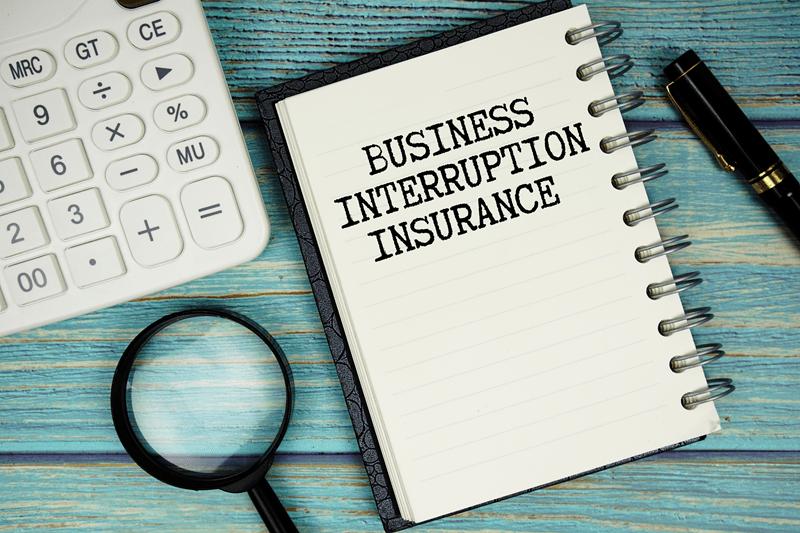
One of the risks in doing business in the United States is to plan for those variables one has control over, such as operations, staffing, and workflow, and to prepare for those things no one can, which might include natural disasters, fire, supply chain disruptions, or state-mandated shutdowns. If some unexpected event or circumstance disrupts your ability to operate, the financial consequences can be severe. That is where business interruption claims become so critical. Business interruption claims allow an organization to recover lost income, pay operating expenses, and stay financially sound during a temporary shutdown.
However, getting the right coverage and understanding what your insurance really provides can be complicated. Most business owners realize too late that they are underinsured, misunderstood their policy limits, or were unprepared for the detailed documentation required during the claim process for businesses. Here we break down everything a U.S. business owner needs to know: how coverage works, lost income insurance, what you can expect during business closure claims, and how to maximize your interruption policy payout.
Commercial property insurance covers physical assets but will not compensate you for lost income during periods when operations are disrupted. This is why business interruption claims become so important. When you suffer a temporary closure of your business due to some covered event, this coverage will step in to provide:
Lost income insurance is often the difference between temporary inconvenience and permanent business failure. For small and midsized businesses, and especially for those with high overhead or very tight margins, this coverage offers a vital financial cushion.
Most U.S. policies cover the following types of losses:
The biggest positive of business interruption coverage is the compensation of the income you would have earned had the interruption not occurred. Therefore, this is the reason why lost income insurance needs to be computed on actual financial records.
Most bills, such as rent, utilities, equipment financing, and loan payments, must be paid even during periods when your business is closed.
Knowing exactly what is covered is crucial. So many misunderstandings over claims for business arise simply because owners assumed something was covered that wasn't.
While each insurance company defines "covered perils" differently, most business interruption claims in the U.S. result from:
Not all shutdowns qualify, and most of these policies call for physical loss or damage to the insured property before the claim can begin. Understanding what qualifies is a very important part of smart commercial insurance advice.
Because lost income insurance is central to business interruption coverage, it is important that you know how insurers calculate your lost revenue. Common factors include:
One of the major reasons why business owners realize delays or lower payouts during claims made for the closure of a business is that financial records may be inaccurate or incomplete. Keeping clean, updated records is the most reliable way to protect your future claim.
Business interruption claims need proper documentation, preparation, and timely communication for successful filing. Here is what the usual process looks like:
Your insurer will ask:
Because lost income insurance is based on verifiable numbers, the accuracy of these documents will directly affect your payout. Many policyholders hire a public adjuster or a CPA to help make certain that the values reflected in their business interruption claim are appropriate and reasonable.
You may be compensated for everything you spend to reduce the loss or continue operating: temporary office space, marketing to notify customers, or even rush shipping. Business claims may be slow in processing, as complex financial information needs to be analyzed by insurers. Regular follow-ups prevent unnecessary delays.

The length of time that a business is disrupted can affect the total amount you'll receive. Most policies have two time-related limits:
Even when your claim qualifies, a number of variables affect how much you receive:
If your business has grown but your coverage hasn't been updated, then your policy probably does not reflect your current revenues.
Failure to carry adequate coverage will reduce your interruption policy payout amount, thereby making you responsible for a percentage of the loss.
Some common exclusions include:
Understanding these exclusions is the key commercial insurance advice for any business owner reviewing their policy.
Whether you are purchasing new coverage or reviewing the policy you already have, the following actions will lead to robust protection:
Understand specific risks to your industry, location, and operating model; this, in turn, helps tailor your business interruption claims coverage to real-world threats.
Determine how much lost income insurance you really need with the use of accurate financial projections.
Depending on your business, consider endorsements for:
These can significantly broaden the types of events that trigger business closure claims.
Clean financials are at the core of an efficient claim process. Financial data must be easily accessible and safely backed up.
Regular reviews will help you keep coverage in line with growth, increased expenditures, or operational expansion.
Many owners inadvertently limit their own payouts. The following are some common mistakes to avoid:
To ensure that your cover really protects your business, consider:
In this way, when you need to file claims for business closure, you will already be prepared insofar as the requirements of the insurer are concerned.
Unforeseen interruptions can put any enterprise's financial stability in jeopardy. Proper coverage allows recovery of your operations, while understanding how business interruption claims work empowers you to protect your revenue, employees, and long-term goals. Strong lost income insurance, together with informed handling and proactive planning backed by smart commercial insurance advice, may ensure fair and timely interruption policy payouts.
Give yourself the time now to review your policy, beef up your documentation, and learn about the claim process for businesses, and it may just make all the difference when you face that unexpected shutdown. For U.S. business owners seeking true resilience, comprehensive business interruption coverage isn't just helpful-it's essential.
This content was created by AI